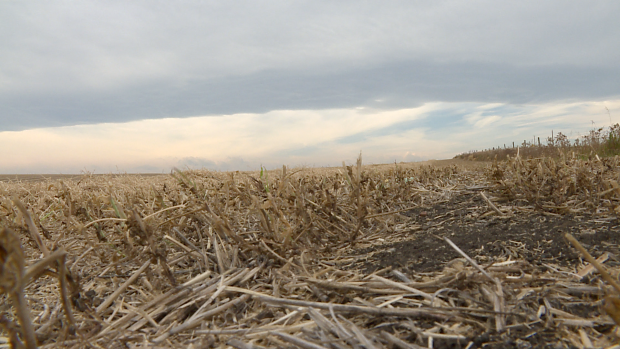$1M to develop climate change strategy helps quench thirst for long-term Prairie water management plan
A $1-million federal budget commitment to develop a strategy for land and water management in the Prairies is being welcomed by members of the agriculture and research sectors.
Last week's federal budget included funding for Western Economic Diversification Canada to come up with a plan to address climate change threats.
"The ongoing effects of climate change on the Prairies' valuable water and soil resources threaten the ability of farmers and ranchers to continue to grow high-quality crops and raise world-class herds — putting the future of Prairie communities and Canada's food supply at risk," reads the budget document, released on March 19.
It said the strategy will be developed in partnership with the provinces of Saskatchewan, Alberta and Manitoba, along with Indigenous stakeholders, academics and private sector groups.
Prairies face drought, flood, fires
John Pomeroy, the director of the University of Saskatchewan Centre for Hydrology and the Global Water Futures program, welcomed the decision to develop a federal strategy.
Pomeroy, who is also a Canada Research Chair in Water Resources and Climate Change, said Canada needs a co-ordinated approach to effectively prepare for climate change impacts.
With the South Saskatchewan River flowing through the three Prairie provinces, he said management strategies will have to be shared.
"We are the water-short part of Canada. Canada in general has water abundance, but not the Prairies," Pomeroy said Friday, which was World Water Day.
"So we have to manage our water to the very highest standards using the best information available, using the best predictions and using principles of integrated river basin management."

He said infrastructure, design, flood and drought forecasting systems are needed, along with "intelligent" water management, to defend the Prairie provinces from floods, droughts and fires.
Pomeroy pointed to the current flooding in Nebraska, saying Saskatchewan needs to be prepared for a similar event.
Any plan will need to consider the interests of all parties and include Indigenous nations, he said.
Farming group welcomes funds
Todd Lewis is the president of the Agricultural Producers Association of Saskatchewan and a farmer in Gray, Sask.
He said protecting water resources will be important to food processing industries and producers alike.
"Making flour, making protein, stripping protein out of our pulsed crops and having them processed on the Prairies — that's going to need a lot of water," said Lewis.
He said billions of dollars are already available to farmers through green-infrastructure funds. He also expects some will invest their own money in protecting water resources with measures like irrigation.
Lewis said Saskatchewan farmers have adapted constantly with new technology and seeding practices.
Overall he believes a strategy is needed to co-ordinate efforts between all levels of government and producers.
"Agriculture is a big driver in the Saskatchewan economy, so we need to see more land management, more water management," said Lewis.
"The fact of the matter is we need to drought-proof and flood-proof this province."

